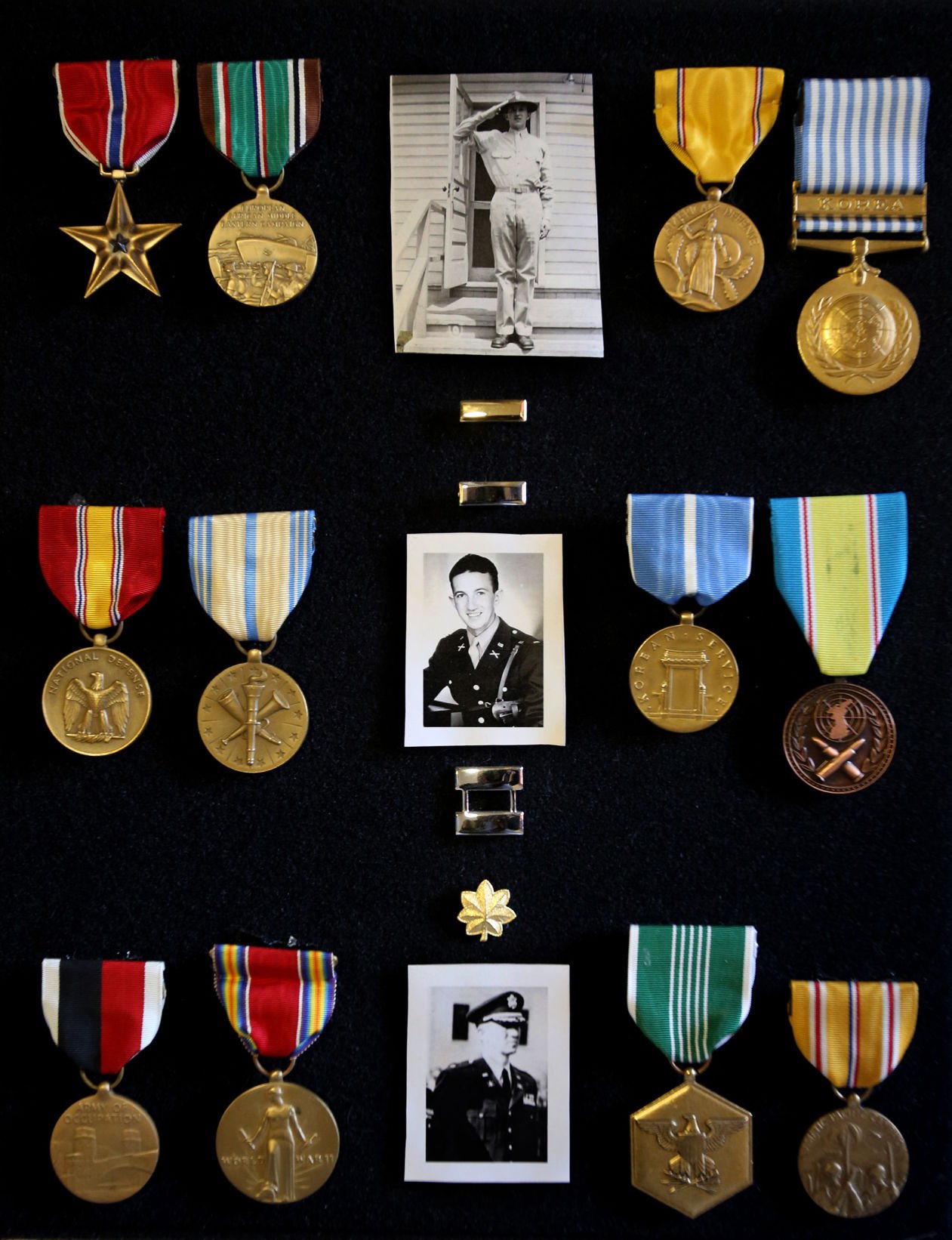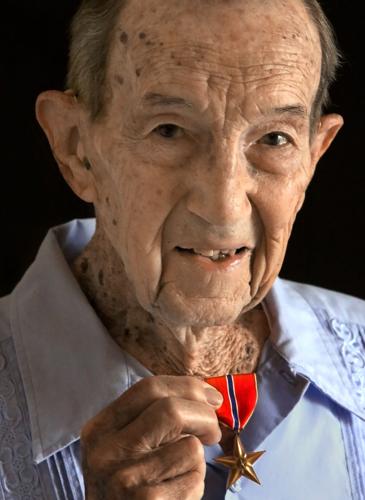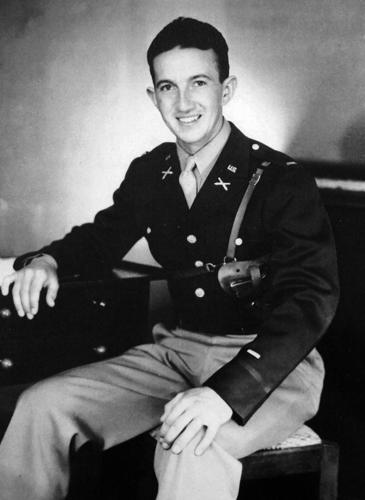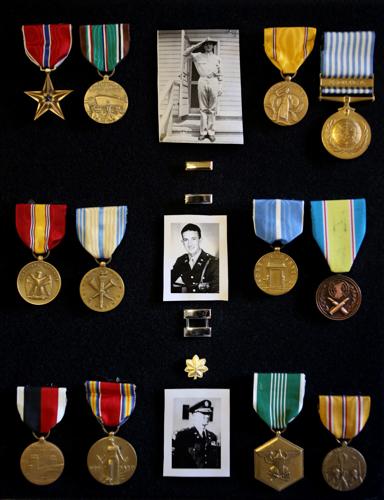James Britt worked on a farm in Asheville, North Carolina, to help feed his family. He knew the importance of tending to crops, bringing in the harvest and the logistics of keeping things running smoothly. Then his world changed.
He was 20 and drafted into the Army, training at Fort Bragg in mule pack artillery. He learned to breakdown cannons and transport the pieces by mule into battle fields. He fit well into the 4th Field Artillery Battalion.
Much of his job had to do with order and logistics. By the time he was sent to the Pacific Theater in 1942, the Jeep was in use and his unit no longer needed to use pack mules for transportation. The commanders kept an eye on Britt’s talents, and eight months later he was moved from a South Pacific island to Fort Sill, Oklahoma, for officer training.
 |
By late 1944, he was off to move artillery units in the Central European Campaign. His troops also rounded up German prisoners of war — securing their arms — and moving hundreds to compounds in the vicinity of Regensburg after the war. “Our teams of counterintelligence had to interview prisoners to determine whether or not they would be prosecuted for participating in war crimes,” recalled Britt, 96, from his east-side home.
In 1949, Britt was shipped back to Fort Bragg and assigned to the 1st Field Artillery Observation Battalion and was sent to the Korean War to obtain ground intelligence for infantry and artillery use against the enemy. Microphones were buried in the ground to help confirm troop movement; soldiers were stationed to observation posts to pick up enemy gunfire; and radar was used to locate enemy shells coming toward U.S. soldiers, said Britt, who was promoted to captain and had more than 100 troops under his command.
From late 1950 to 1951, he and all except one of his men survived extremely cold temperatures, including sub-zero weather with only their uniform and a field jacket. “We wore two to three pairs of socks and kept moving our feet to try not to get frostbite,” said Britt, of his soldiers who lived in tents over frozen ground.
 |
By 1952, Britt was shipped back to Germany, with the 539th Field Artillery Battalion and he and his men installed a relay of instruments to keep an eye on Russian troops during the Cold War. He returned to Fort Bragg in 1955 where he tested military equipment for artillery-use and for field communications, which led him to Fort Huachuca and to visit Tucson.
“I almost froze to death in Korea, and I told myself if I ever get out of this miserable place alive, I am moving to a warm climate,” said Britt, explaining his move to Tucson in 1961 after serving 20 years and earning military decorations, including the Bronze Star and Victory World War II medal. He retired a major.
Jeff Britt said he is proud of his father, a former Tucson Unified School District teacher, who has “always given back to the community.” He said that his father still runs into former students who thank him for helping them succeed.






